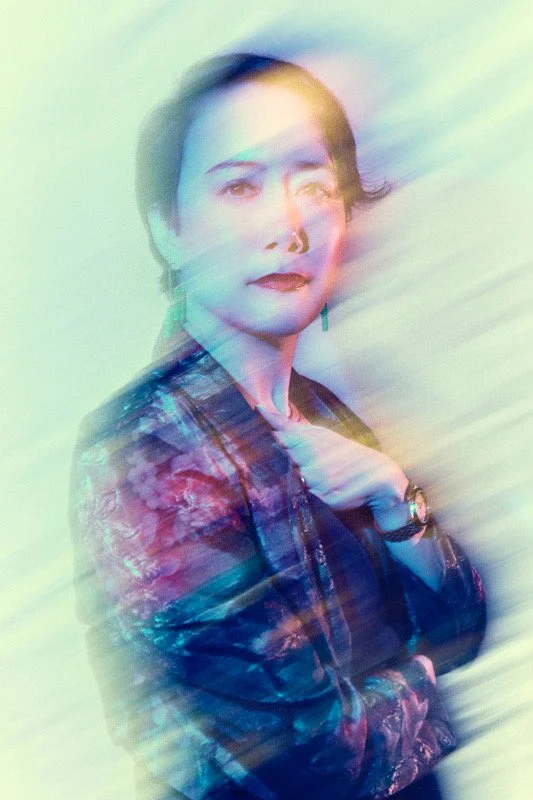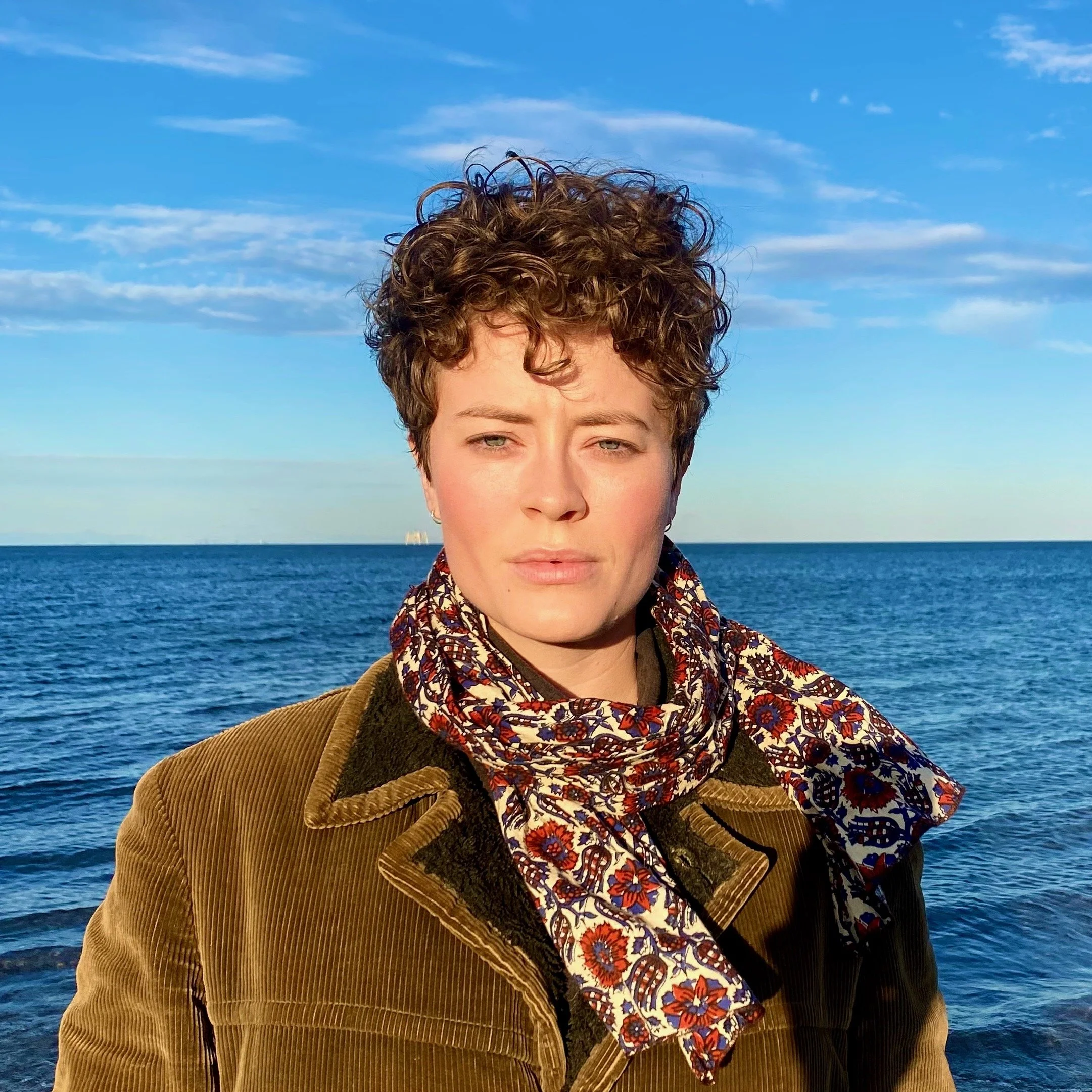TWINDEX: A Twin Studies (Tw)Intervention
call for submissions
For centuries, identical twins have captured the interest (and horror) of the countless untwinned, for what they have illuminated in terms of connection, doubling, likeness, and self. Whether in the eye of the eugenicist physicist, such as Josef Mengele who experimented on twins in Auschwitz, or filmmaker Stanley Kubrick’s Diane Arbus-inspired horror of The Shining, through the fetishized eye of the singularly birthed, twins are often flattened and represented as a symbol rather than as distinct individuals in visual culture. TWINDEX reclaims twins’ own identity and experience, featuring scholarly and personal reflections as well as mixed media. Its structure is notably inspired by works like Alice Wong’s Disability Intimacy and Christina Sharpe’s Ordinary Notes.
Despite the rise of twin births over the last two decades from the increased access of fertility treatments and reproductive technologies like IVF, twins are still considered an anomaly, in which the ethics around representing twinhood popularly and critically remain unconsidered. We intend to bridge this gap by offering a model for “ethical” twin studies, one invariably grounded in lived experience, collectivity, community, and autonomy (i.e. advocating for centering twins’ own representation of themselves).
Editors Addie Tsai, Marta Croll-Baehre, and Emma Croll-Baehre are seeking the following individual or joint submissions from scholars, writers, and artists reflecting on twinhood, whether critically, historically, artistically, or personally: scholarly articles (20-25 pages), creative prose (10-15 pages), and mixed media creative responses that can be included in a print anthology, such as visual and hybrid work. We accept reprints and simultaneous submissions.
Please submit an abstract for scholarly articles or a complete creative works by February 22, 2026 (extended from its original submission deadline of December 31, 2025) to editors Addie Tsai, Marta Croll-Baehre, and Emma Croll-Baehre at twindexanthology@gmail.com.
Addie Tsai (any/all) is the author of Dear Twin (2019), included in American Library Association’s Rainbow List in 2021, and Unwieldy Creatures (2022), a Shirley Jackson finalist for Best Novel, and Straight White Men Can’t Dance: American Masculinity in Film and Popular Culture (2025). She collaborated with Dominic Walsh Dance Theater on Victor Frankenstein and Camille Claudel, among others. They are the founding editor in chief for just femme & dandy. Addie is an Assistant Teaching Professor of Creative Writing at William & Mary, where she is Affiliate Faculty in Asian Pacific Islander American Studies and Gender, Sexuality, and Women’s Studies. Her articles have been published in LO:TECH:POP:CULT: Screendance Remixed (2024), The Bloomsbury Handbook of Dance and Philosophy (2021), Slapstick: An Interdisciplinary Companion (2021), and The International Journal of Screendance.
As an identical and mirror twin, Addie has explored twinship and the proliferation of twin tropes in film, media, and literature both creatively and critically across her writing and artistic career. In her young adult novel, Dear Twin (2019), Addie sought to center the twin experience in young adult fiction (rather than relegate it to the background of a main character, or as a ghostly and uncanny presence, as has been seen throughout contemporary young adult literature). She has also written about the complexity of twin representation in David Cronenberg’s Dead Ringers in It Came from the Closet (2022) and Territory, and her fashion remakes in Interim. Addie also freelances as a sensitivity reader on twin identity, and advocates for a nuanced and realistic representation of the twin experience. Her use of the double exposure to consider her own lived experience as both singular and twinned can be seen on her IG account, addietakespolaroids, as well as on video in Lover’s Eye Press’s David Lynch tribute folio.
Marta Maxwell Croll-Baehre (they/them) is a PhD candidate (ABD) in the Department of English and Cultural Studies at McMaster University. They are currently completing their CGS-D-funded dissertation, titled “Contagious Likenesses: On the Consumption of Uncanny Cute Twins in the Gothic Anthropocene,” which is prompted by their experience as an identical twin, navigating their day-to-day in tight lockstep with their sibling, Emma. Their project fleshes out critical new territory in the field of Gothic Studies by making two foundational arguments: first, the Cute is, in fact, a Gothic phenomena; and second, twins are, problematically, subject to this seemingly paradoxical aestheticisation. To make these claims, they doubly examine “uncanny cute” twins through their embodied experiences, and twin- and double-encoded texts (literary, filmic, and visual) from the long nineteenth century to the contemporary. In complicating narratives between individuality and collectivity, objectivity and subjectivity, objectification and autonomy, aestheticisation and politicisation, and purity and danger, this project reveals intermingling complexities that stretch beyond the scholarly study of twinship toward essential epistemological questions of being human in an age of identity politics, late capitalism, and environmental degradation. Marta received the Barbara-Godard Award (ACQL) in 2021 for Best Paper by Emerging Scholar.
Emma Croll-Baehre (they/them) is a Vanier scholar and PhD candidate (ABD) in the Department of English and Cultural Studies at McMaster University. Emma’s dissertation, “Is There Life or Death on the Horizon?: On National Storytelling and the Mythologization of Twinship,” engages with twin literary, digital, and cultural productions, as well as representations of twins, for what they impart about national ideals and formations. They are concerned with how twins (their identities, intimacies, and lived experiences) are appropriated to tell stories about nationhood, belonging, and ‘insidership,’ and how twin body-minds become sites whereupon identity norms (both individual and collective) are negotiated and naturalized. Emma’s research investigates how such affective, sociocultural, historical and political meaning-making has occurred in and through stories of twins, backdropped by broader forces of settler colonialism, enfreakment, and pathologization which continue to inform how twins are treated and perceived. Emma’s research also considers how writing and cultural productions by twins hold the capacity to destabilize nationalist imaginaries. Emma is the twin sibling of Marta Croll-Baehre; their research is intimately informed by their lived experience of twinship. Emma is also the former graduate student representative of the Canadian Studies Network-Réseau d’études canadiennes (CSN-RÉC), and Canadian graduate representative for the Network for Emerging Scholars in Canadian Studies (RIJEC/INES-Canada).



